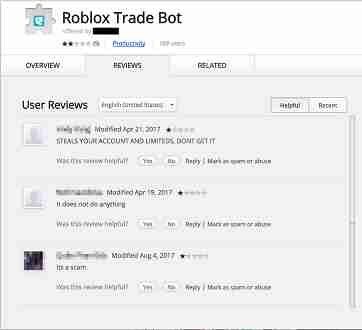Google Chrome extensions are a great way to add useful features to your browser. But beware: Although most are reliable, the Chrome store has been known to have one or two false extensions that contain malware . To help you avoid these potential hazards, we’re going to show you how to differentiate between a legitimate extension and one that is garbage .
How to check if a Chrome extension is legitimate
1. Identify impostor extensions
One of the most common practices of hackers is to create apps and extensions that pretend to be famous programs that people trust. This recently happened when over a million people downloaded a fake version of WhatsApp , but it also happens with other popular Chrome extensions, like ad blockers . To find out if an extension is fake, ask yourself these questions:
Does the extension have a decent rating and number of reviews?
Is the developer listed who you would expect?

If you can answer “no” to either of these questions, don’t download it.
2. Read the opinions of other users
The best way to check the reliability of any extension is to look at what other people who are using it are saying . If nobody has anything good to say, or if there are people complaining that it doesn’t do what it is supposed to do, then you should think twice.

3. Check the permissions
Even if you’ve already downloaded an extension, it is not too late to determine whether or not it is legit. A good way to check is to look at the permissions it asks for as you install it. If an extension asks for too many permissions, be wary — especially if they are permissions relating to your private data, like activity tracking or file access.
4. Control automatic updates
Sometimes an extension isn’t malicious to begin with, but it later gets an update that adds malicious lines of code . This new code will then act as malware and make money for the developer using your data or through displaying ads. To avoid this, keep track of which extensions are updated automatically.
We recommend that you only allow fully reliable extensions to update automatically. That way, if you see something weird, you can uninstall the suspicious extensions without further ado.
5. Beware of the “Applications” tab
Be careful when you enter the Chrome Web Store, because by default applications will show first when you search , not the extensions. Some developers take advantage of this by creating applications that mimic a specific extension. This places them in a higher position than the original extensions and can capture clueless users.
So check that what you are going to download is an extension and not an application.
Keep data thieves at bay!
All these tricks should be enough to keep you safe from the big threats out there. When in doubt, put yourself in detective mode and follow these tricks to keep clear of scams and data thieves.
Want more security tips? Check out the video below.
Via: trendmicro , ghacks and Softonic
